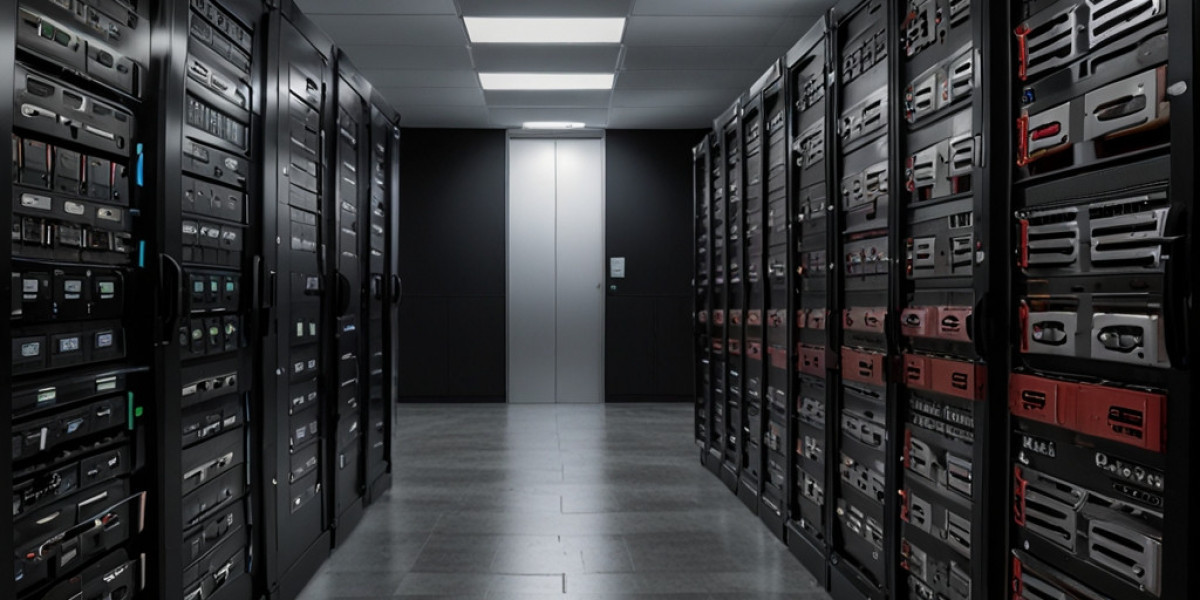Efficient, secure, and scalable data storage lies at the heart of every modern organization. Whether discussing enterprises managing massive datasets or small businesses ensuring seamless day-to-day operations, reliable solutions are key. Among these, network storage solutions (including NAS storage) stand out as robust options, offering enhanced scalability, data sharing capabilities, and superior performance.
This blog post will explore what makes network storage solutions indispensable today, the innovations shaping their future, and how they can help organizations scale their operations efficiently while maintaining data security.
Why is Data Storage Evolving?
The rapid digitization of industries worldwide has propelled organizations into relying on vast amounts of data for decision-making, customer engagement, and operational efficiency. However, challenges such as scalability, security concerns, and the growing importance of collaboration have forced businesses to rethink traditional storage mechanisms.
Network storage solutions have emerged as a seamless way for businesses to handle their data-centric challenges. Unlike local storage, network storage systems allow multiple users and devices to access and store information remotely through a shared network. But what makes network storage solutions particularly suited for the demands of modern businesses? Let's unpack that below.
Network Storage Solutions Explained
At its core, network storage refers to a system where multiple storage devices are consolidated and connected via a network to centralized data management and accessibility.
There are two primary types of networked storage:
Network Attached Storage (NAS): A dedicated file storage device that connects to a network, allowing multiple users to access data and manage it easily. NAS systems are simple to set up, scalable, and cost-effective for small businesses and enterprises alike.
Storage Area Network (SAN): A high-performance network that provides block-level storage primarily used in enterprise environments that demand ultra-fast file access and robust storage capacity.
Now that the basics are clear, let's explore the benefits of network and NAS storage solutions that make them a leading choice for businesses.
Benefits of Network Storage Solutions
1. Scalability Without Major Overhauls
Network storage solutions are inherently designed for seamless scalability. Businesses can start with lower capacity NAS systems and expand storage as their requirements grow without overhauling infrastructure. For larger enterprises, SAN systems can meet tremendous storage needs with unparalleled speed.
Take a small e-commerce business upgrading to multi-terabyte NAS storage solutions as an example. Additional drives can be integrated into the same NAS enclosure, ensuring operations keep scaling without interruptions.
2. Centralized Data Management
Instead of individual users maintaining separate data sets on disparate devices, network storage consolidates information to a central repository for easy access and management.
Centralized data reduces redundancy, boosts efficiency, and simplifies backup or disaster recovery operations — turning it into a crucial feature for enterprises handling mission-critical data.
3. Superior Collaboration
Team collaboration improves when shared network storage is in place. With NAS-specific solutions, all team members can access project files remotely, enabling real-time edits and sharing without the latency issues typical of cloud services.
This feature is particularly appealing to creative teams managing multimedia or engineering teams relying on giant CAD/CAE files.
4. Enhancing Data Security
Data integrity and safety are core features of most NAS and SAN systems. Encryption, frequent backups, RAID integrations, and layered authentications ensure robust protection of sensitive business data in a networked setup.
For instance, premium NAS systems come with AES 256-bit encryption, offering enterprise-grade security that fights off unauthorized data access.
5. Cost Efficiency
Unlike traditional methods requiring multiple storage environments, networked solutions combine storage, security, and accessibility into one compact architecture. Over time, this reduces costs substantially for companies of all sizes.
For example, a mid-sized healthcare center moving from countless external hard drives to NAS storage saved not only time but also operational costs related to poor data organization.
Innovations Shaping the Future of Network Storage Solutions
The future of network storage solutions is exciting, with game-changing innovations slated to address pain points like data bottlenecks and increasing demand for AI-driven analytics.
1. Hybrid Storage Models
Enterprises are increasingly drawn to hybrid NAS systems that combine the performance of on-premises storage with the flexibility of cloud computing. Businesses can store highly confidential data locally while leveraging cloud spaces for less critical or temporary files, creating the perfect balance of accessibility and data sovereignty.
2. AI and Machine Learning Integration
Artificial Intelligence (AI) is revolutionizing every aspect of the enterprise, and NAS storage is no exception. With AI-powered analytics integrated into NAS systems, organizations gain real-time insights into storage usage patterns. Additionally, predictive monitoring helps detect anomalies, pointing to hardware faults before issues escalate.
3. Adoption of NVMe
Network-attached storage is no stranger to performance upgrades. NVMe (Non-Volatile Memory Express) optimizations are pushing NAS systems to new heights, offering ultra-fast speeds and reducing latency exponentially for demanding workflows.
4. Edge Computing Integration
NAS systems are starting to integrate edge computing, enabling distributed devices to store and process data locally instead of sending it to central servers. This ensures reduced latency and supports IoT-heavy use cases like smart manufacturing or autonomous vehicles.
5. Focus on Green Storage
Eco-conscious businesses will soon witness NAS and SAN designs adopting greener technology, such as drives that consume less power, optimize workloads dynamically, and even recycle certain components.
Choosing the Right Network Storage Solution
Selecting the right solution for your organization requires evaluating several factors:
Data Volume: Does your business need terabyte-level capacities, or will a smaller NAS suffice?
Performance Needs: High-speed vs. general-purpose storage – decide based on your application types.
Budget: Ensure scalability aligns with long-term affordability.
Ease of Use: Look out for user-friendly management dashboards and clear installation processes.
Security Requirements: Ensure options like RAID levels, encryption, and multi-factor authentication are supported.
For businesses just starting out with networked storage, NAS storage solutions tend to offer simplicity and affordability without compromising on features.
Network Storage Solutions as a Competitive Edge
The future of data storage is heading towards smart, efficient, and versatile solutions capable of addressing the diverse needs of modern-day businesses. Network storage systems, particularly NAS setups, seamlessly meet these demands by excelling in scalability, security, and operational efficiency.
By adopting these cutting-edge solutions, organizations can focus resources on growth while confidently managing growing data ecosystems.
Start exploring network storage options today to equip your business for the data-intensive future. Whether you're transitioning to NAS or investing in a high-performance SAN, laying the foundation now will provide a competitive edge tomorrow.









